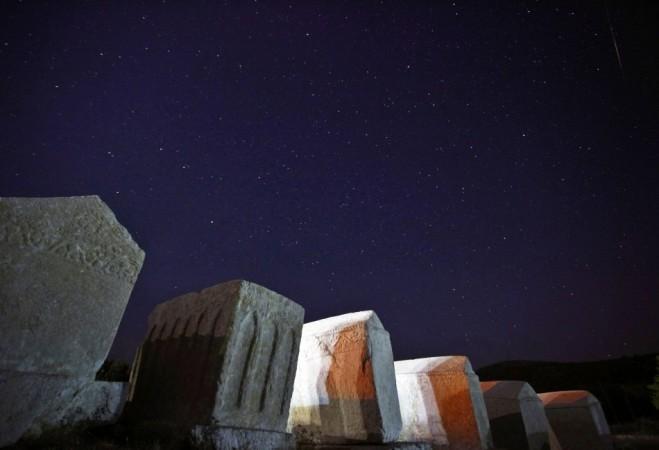
Looks like we aren't alone as British researchers have reported that they've found "alien microbes" coming to earth from outer space.
The discovery was made by researchers at University of Sheffield. For the study, researchers had sent a specially designed balloon 27km into the stratosphere during the recent Perseid meteor shower.
"Most people will assume that these biological particles must have just drifted up to the stratosphere from Earth, but it is generally accepted that a particle of the size found cannot be lifted from Earth to heights of, for example, 27 km. The only known exception is by a violent volcanic eruption, none of which occurred within three years of the sampling trip," said Professor Milton Wainwright from the University's Department of Molecular Biology and Biotechnology
There haven't been any events that might have put the microbes in stratosphere, which has led researchers to believe that the microbes have come from beyond earth. "Our conclusion then is that life is continually arriving to Earth from space, life is not restricted to this planet and it almost certainly did not originate here," said Wainwright in a news release.
The idea of life coming from elsewhere in space isn't entirely new. For decades, it has been hypothesized that life might have originated at some other place in the Universe and accidentally landed on Earth. Previous research supports the idea that life or compounds necessary for building life might have hitched a ride on comets or meteorites. The latest study findings show that meteor showers might have prof of life in outer space.
The balloon used in the study designed by Chris Rose and Alex Baker from the University of Sheffield's Leonardo Centre for Tribology, had microscopic studs that were only exposed when the balloon ascended to a height of 22 to 27 km. The balloon was launched near Chester and landed safely near Wakefield.
Analysis of the trapped particles on studs showed presence of diatom fragment and some other biological forms that are all too big to have come from earth. Researchers said that they took all precautions to ensure that the samples weren't contaminated during analysis.
The team will be sending another balloon in October during the Haley's Comet-associated meteorite shower. "The absolutely crucial experiment will come when we do what is called 'isotope fractionation'. We will take some of the samples which we have isolated from the stratosphere and introduce them into a complex machine - a button will be pressed. If the ratio of certain isotopes gives one number then our organisms are from Earth, if it gives another, then they are from space," Wainwright said." The tension will obviously be almost impossible to live with!"
Their study is published in the Journal of Cosmology.













